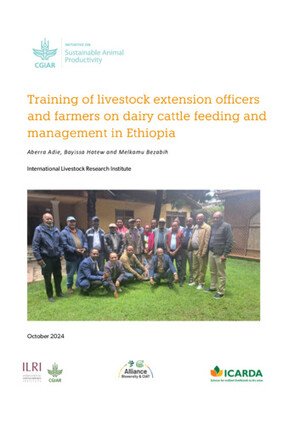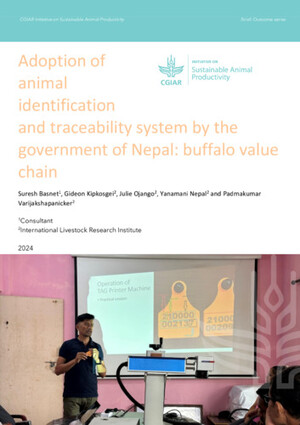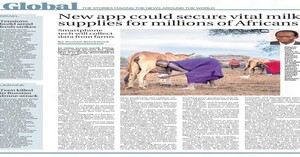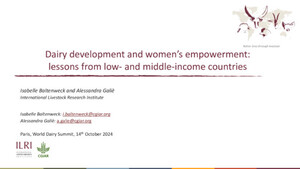
Genomic evaluations using data recorded on smallholder dairy farms in low- to middle-income countries
Abstract
Breeding has increased genetic gain for dairy cattle in advanced economies but has had limited success in improving dairy cattle in low- to middle-income countries (LMIC). Genetic evaluations are a central component of delivering genetic gain, because they separate the genetic and environmental effects of animals' phenotypes. Genetic evaluations have been successful in advanced economies because of large data sets and strong genetic connectedness, provided by the widespread use of artificial insemination (AI) and accurate recording of pedigree information. In smallholder dairy production systems of many LMICs, the limited use of AI and small herd sizes results in a data structure with insufficient genetic connectedness between herds to facilitate genetic evaluations based on pedigree. Genomic information keeps track of shared haplotypes rather than shared relatives captured by pedigree records. Therefore, genomic information could capture "hidden" genetic relationships, that are not captured by pedigree information, to strengthen genetic connectedness in LMIC smallholder dairy data sets. This study's objective was to use simulation to quantify the power of genomic information to enable genetic evaluation using LMIC smallholder dairy data sets. The results from this study show that (1) genetic evaluations using genomic information were more accurate than those using pedigree information in populations with a high effective population size and weak genetic connectedness; and (2) genetic evaluations modeling herd as a random effect had higher or equal accuracy than those modeling herd as a fixed effect. This demonstrates the potential of genomic information to be an enabling technology in LMIC smallholder dairy production systems by facilitating genetic evaluations with in situ records collected from herds of ≤4 cows. The establishment of routine genomic evaluations could allow the development of LMIC breeding programs comprising an informal set of nucleus animals distributed across many small herds within the target environment. These nucleus animals could be used for genetic evaluation, and the best animals could be disseminated to participating smallholder dairy farms. Together, this could increase the productivity, profitability, and sustainability of LMIC smallholder dairy production systems.
Citation
Powell, Owen; Mrode, Raphael A.; Gaynor, R. Chris; Johnsson, Martin; Gorjanc, Gregor; Hickey, John M. 2021. Genomic evaluations using data recorded on smallholder dairy farms in low- to middle-income countries. JDS Communications 2: 366-370










